
LANGUAGE LEARNING & TECHNOLOGY
metrics 2024
Transforming Language Learning in the Digital Age
Introduction
LANGUAGE LEARNING & TECHNOLOGY, published by the University of Hawaii's National Foreign Language Resource Center, stands as a pioneering platform within the realms of linguistics, education, and computer science applications. With an impressive impact factor and esteemed rankings—achieving Q1 in Education and Q1 in Linguistics and Language—this open-access journal has been disseminating critical research since its inception in 1997. The journal operates under a commitment to fostering innovative approaches to language learning through technology, making it invaluable for researchers, educators, and practitioners seeking to enhance their understanding of this dynamic intersection. Hailing from the United States, the journal not only promotes scholarly dialogue but also champions accessibility to knowledge, ensuring that the latest advancements in language learning and technology are readily available to a global audience. With converged years documented from 1997 to 1998 and from 2000 to 2021, LANGUAGE LEARNING & TECHNOLOGY continues to play a pivotal role in shaping contemporary discussions around language education and the influence of technology on learning methodologies.
Metrics 2024
 0.88
0.88 3.50
3.50 5.20
5.20 91
91Metrics History
Rank 2024
Scopus
IF (Web Of Science)
JCI (Web Of Science)
Quartile History
Similar Journals
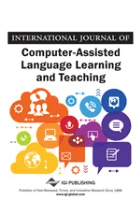
International Journal of Computer-Assisted Language Learning and Teaching
Enhancing learning experiences through technology.Welcome to the International Journal of Computer-Assisted Language Learning and Teaching, a premier publication by IGI Global dedicated to advancing the interdisciplinary research at the intersection of linguistics, education, and computer science. With an ISSN of 2155-7098 and an E-ISSN of 2155-7101, this journal aims to provide a platform for innovative studies on the implementation and effectiveness of technology in language learning and teaching. The journal has earned notable recognition within its field, securing a Q1 ranking in Linguistics and Language and strong placements across several categories in the 2023 Scopus Ranks, including a Q3 classification in Computer Science Applications and Computer Vision and Pattern Recognition. Researchers and educators are encouraged to contribute their findings to foster dialogue around effective computer-assisted methodologies and instructional practices. Although the journal is not open access, it remains a vital resource for researchers, professionals, and students seeking to enhance the efficacy of language education through technological innovation.
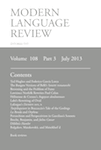
MODERN LANGUAGE REVIEW
Unveiling Contemporary Debates in Humanities ResearchMODERN LANGUAGE REVIEW, published by the Modern Humanities Research Association, is a pivotal academic journal based in the United Kingdom, focusing on the fields of linguistics, literature, and literary theory. With an ISSN of 0026-7937 and an E-ISSN of 2222-4319, this journal serves as a platform for disseminating research that explores the nuances of language and its literary contexts. Although currently not an open-access publication, it provides valuable insight into a range of topics, contributing to a deeper understanding of human communication and expression. Covering a wide scope with a publication history from 2002 to 2024, the journal is indexed in Scopus and holds a Q4 ranking in both linguistics and literature categories, indicating its emerging influence within these academic disciplines. As the landscape of humanities research continues to evolve, MODERN LANGUAGE REVIEW remains a vital resource for scholars, professionals, and students aiming to engage with contemporary debates and developments in language and literature.
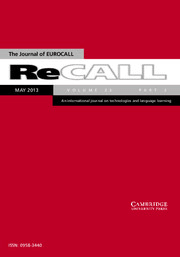
ReCALL
Illuminating the Path of Technology-Enhanced Language LearningReCALL is a prestigious academic journal published by Cambridge University Press, focusing on the rapidly evolving interplay between technology and language learning. Established in 1989, this quarterly journal holds a distinguished Q1 ranking across multiple categories including Computer Science Applications, Education, and Linguistics and Language, reflecting its commitment to the highest standards of scholarly excellence. With an impressive Scopus ranking that places it in the top percentiles across its fields, ReCALL serves as a vital resource for researchers, educators, and professionals interested in the integration of technology in language education. It features cutting-edge research articles, innovative methodological approaches, and comprehensive reviews that offer insights into the current trends and future directions of language learning, teaching, and assessment. By providing a platform for penetrating inquiry and dialogue, ReCALL significantly enhances the discourse surrounding computer-assisted language learning (CALL) and its influence on educational practices worldwide.

Language Learning in Higher Education
Fostering scholarly dialogue on language pedagogy.Language Learning in Higher Education is a prominent academic journal published by DE GRUYTER MOUTON, dedicated to exploring the intricate dynamics of language acquisition and pedagogical practices within the higher education context. With a robust ISSN: 2191-611X and E-ISSN: 2191-6128, this journal provides a platform for innovative research that addresses contemporary challenges and methodologies in language education. The journal enjoys a favorable reputation in the academic community, as evidenced by its ranks in the Scopus database, where it holds a position in the 67th percentile for Language and Linguistics and is classified in the Q3 and Q2 quartiles across relevant education and linguistics categories. Since its convergence in 2017, Language Learning in Higher Education aims to enrich scholarly discourse by publishing high-quality articles that foster insights into effective language learning strategies, thus serving as an essential resource for researchers, educators, and students committed to enhancing language education. The journal's editorial team is devoted to advancing the field through rigorous peer-review processes and welcomes contributions that push the boundaries of language learning research.

ALSIC-Apprentissage des Langues et Systems d Information et de Communication
Empowering Language Learning Through Innovative Research.ALSIC-Apprentissage des Langues et Systems d Information et de Communication, published by ADALSIC, is a premier Open Access journal that has been at the forefront of language learning and information and communication systems since its inception in 1998. With its ISSN 1286-4986, this journal provides a crucial platform for researchers, educators, and practitioners to share innovative findings and pedagogical practices in the interdisciplinary fields of linguistics, education, and technology. The journal invites contributions that explore the dynamics of language acquisition, the effectiveness of communication systems, and the integration of technology in learning processes. By maintaining an Open Access policy, ALSIC ensures that its valuable research is accessible to a global audience, promoting collaboration and knowledge sharing among scholars and professionals dedicated to enhancing language education and communication methodologies. As an inclusive journal based in Strasbourg, France, it plays a vital role in shaping current discourse and advancing research in its field.
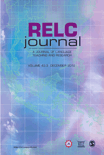
RELC Journal
Challenging Perspectives, Inspiring Change in Language EducationRELC Journal, published by SAGE Publications Ltd, stands as a leading platform in the fields of Education and Linguistics, boasting an impressive Q1 ranking in both categories according to the latest metrics. Established in 1970 and continuing its commitment to academic excellence through 2024, the journal features rigorous peer-reviewed research that explores the intersections of language, culture, and pedagogy. With a notable Scopus ranking that places it in the 98th percentile for both Language and Linguistics (Rank #16/1088) and Education (Rank #91/1543), the RELC Journal is essential for scholars, educators, and practitioners seeking to contribute to and stay abreast of cutting-edge developments in their respective fields. Although currently not open access, the journal remains accessible to a diverse audience and invites contributions that challenge conventional perspectives and inspire innovative practices in language education.

Journal of Technology and Chinese Language Teaching
Exploring New Frontiers in Language and TechnologyJournal of Technology and Chinese Language Teaching, published by JOURNAL TECHNOLOGY & CHINESE LANGUAGE TEACHING, serves as an influential platform for scholars and practitioners in the intersecting fields of technology, language education, and linguistic research. With an ISSN of 1949-260X, this journal strives to disseminate cutting-edge research and innovative practices aimed at enhancing the teaching and learning of Chinese language through technological advancements. Operated from the United States, it currently occupies valuable quartiles within its categories, showcasing its significance—ranking Q4 in Computer Science Applications, Q3 in Education, and Q2 in Linguistics and Language. As it spans from 2019 to 2024, the journal provides a rich repository for international contributions, fostering a collaborative environment for educators, researchers, and students alike. With both Scopus and HIndex metrics reflecting a solid reputation, the Journal of Technology and Chinese Language Teaching is pivotal for those keen on pushing the boundaries of language instruction in the digital age.

Journal of Language Teaching and Learning
Championing Open Access to Language ResearchJournal of Language Teaching and Learning, with ISSN 2146-1732, is a pivotal peer-reviewed publication dedicated to advancing the fields of language education and linguistics. Published by JOURNAL LANGUAGE TEACHING & LEARNING in Ankara, Turkiye, this journal aims to disseminate cutting-edge research, innovative teaching strategies, and critical analyses that serve the diverse needs of language teachers and learners globally. As an open-access journal, it is committed to providing unrestricted access to high-quality research, making it an invaluable resource for researchers, educators, and students alike. With a strong focus on promoting effective language acquisition and pedagogical practices, the Journal of Language Teaching and Learning holds an important space in the academic landscape, encouraging scholarly dialogue and collaboration in the pursuit of linguistic excellence.
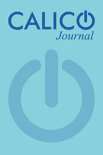
CALICO Journal
Advancing the Future of Language Education through Technology.CALICO Journal, published by EQUINOX PUBLISHING LTD, stands at the forefront of research in the intersection of technology and language education. With a prestigious history that spans from 1983 to 2024, this journal has been pivotal in advancing the field, earning high rankings in multiple categories, including Q1 in Education and Linguistics and Language, as well as Q2 in Computer Science Applications. Researchers and educators alike benefit from its wealth of articles that delve into innovative pedagogical strategies, the application of technology in language learning, and the exploration of linguistic theories. Although the journal is not currently open access, its impactful contributions are widely recognized, as evidenced by its strong Scopus rankings, placing it in the 88th percentile for Language and Linguistics. CALICO Journal remains an essential resource for those looking to enhance their practice and expand their knowledge in the dynamic fields of language learning and technology integration.

Canadian Journal of Applied Linguistics
Championing Inclusivity in Language StudiesCanadian Journal of Applied Linguistics is a premier, peer-reviewed publication dedicated to the field of applied linguistics, encompassing a wide range of topics related to language acquisition, language assessment, teaching methodologies, and sociolinguistics. Published by the ASSOC CANADIENNE LINGUISTIQUE APPLIQUEE, this Open Access journal has been paving the way for innovative research and insightful discourse in the linguistic community since 1998. With its comprehensive insights and scholarly articles, the journal serves as an invaluable resource for researchers, educators, and students alike, facilitating the exchange of ideas and advancements in applied linguistics. The journal is committed to promoting quality research that enhances our understanding of language-related processes in diverse contexts, making it a significant contributor to the global dialogue in linguistics. Based in Ottawa, Canada, the journal is accessible to a wide audience, reflecting its dedication to inclusivity and knowledge sharing in the thriving field of applied linguistics.